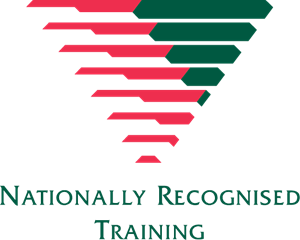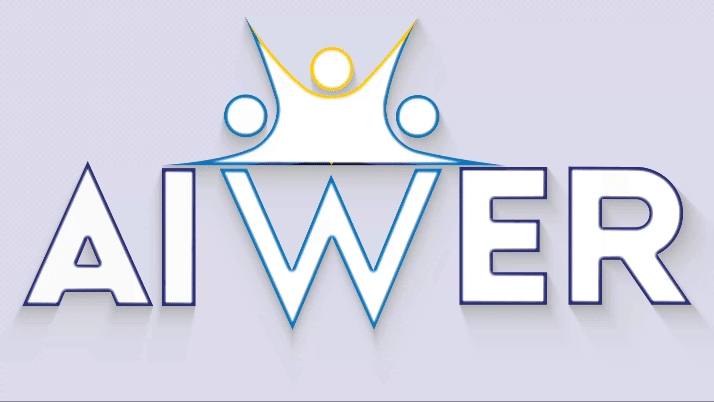ICT60220 – Advanced Diploma of Information Technology (Telecommunications network engineering) (Domestic Students)
August 5, 2024 2024-08-12 7:16ICT60220 – Advanced Diploma of Information Technology (Telecommunications network engineering) (Domestic Students)
ICT60220 Advanced Diploma of Information Technology (Telecommunications Network Engineering) (Domestic Students)
The ICT60220 Advanced Diploma of Information Technology is a nationally accredited course for those seeking to develop their competency in Information Technology. This qualification opens door to a variety of information and communication technology (ICT) roles across a wide range of fast growing industries.
The course will be delivered over two years’ period. The course will be delivered in eight terms over four semesters. The course is delivered in a purpose designed learning environment. Training is conducted face-to-face in a classroom/computer lab (theoretical/practical) environment. Workplace, online, and blended delivery options are also available for eligible students.
This qualification reflects the role of individuals in a variety of information and communications technology roles who have significant experience in specialist technical skills, or managerial business and people management skills. Individuals in these roles carry out complex tasks in a specialist field, working independently, leading a team or a strategic direction of a business. They apply their skills across a wide range of industries and business functions, or as a business owner.
- Network Engineer
- Telecommunications Technician
- Network Administrator
- Telecommunications Project Manager
- Network Consultant
- VoIP Engineer
- Network Security Specialist
- Systems Integrator
- Field Service Technician
- Telecommunications Network Designer
Upon completing the ICT60220 – Advanced Diploma of Information Technology (Telecommunications Network Engineering), students will achieve several key learning outcomes. They will develop advanced skills in designing, implementing, and managing telecommunications networks, including both hardware and software components. Graduates will gain expertise in configuring and troubleshooting network systems, ensuring optimal performance and reliability.
They will also learn to apply network security measures to protect telecommunications infrastructure from threats. Additionally, students will acquire the ability to manage telecommunications projects, including planning, execution, and coordination of network upgrades and deployments. Effective communication and problem-solving skills will enable them to work collaboratively with clients and team members to meet network requirements and resolve technical issues
Units of Competence for Qualification
| Unit Code | Unit Title | Core/Elective |
|---|---|---|
| BSBCRT611 | Apply critical thinking for complex problem solving | Core |
| BSBTWK502 | Manage team effectiveness | Core |
| BSBXCS402 | Promote workplace cyber security awareness and best practices | Core |
| ICTICT608 | Interact with clients on a business level | Core |
| ICTICT618 | Manage IP, ethics and privacy in ICT environments | Core |
| ICTSAD609 | Plan and monitor business analysis activities in an ICT environment | Core |
| BSBLDR523 | Lead and manage effective workplace relationships | Elective |
| BSBPMG430 | Undertake project work | Elective |
| ICTPMG617 | Plan and direct complex ICT projects | Elective |
| ICTNWK546 | Manage network security | Elective |
| ICTNWK538 | Install and maintain valid authentication processes | Elective |
Units of Competence for Telecommunications Network Engineering Specialisation
| Unit Code | Unit Title | Core/Elective |
|---|---|---|
| ICTNPL413 | Evaluate networking regulations and legislation for the telecommunications industry | Elective |
| ICTNWK612 | Plan and manage troubleshooting advanced integrated IP networks | Elective |
| ICTPMG613 | Manage ICT project planning | Elective |
| ICTTEN615 | Manage network traffic | Elective |
| ICTTEN622 | Produce ICT network architecture designs | Elective |
The following local entry requirements apply to applicants seeking to enrol in this course:
- – Successfully complete a Language Literacy and Numeracy (LLN) test
- – Preferably completed Year 10 or a vocational qualification or work experience
The assessment is conducted through a combination of knowledge tests, skills tests, and projects. Each week, approximately three (3) hours of supervised assessment tasks will take place during scheduled classroom attendance. Additionally, students are required to complete six (6) hours of non-supervised assessment work each week. The following outlines the assessment methods:
- Knowledge Test
The student is required to undertake a written knowledge test during study. This test will be provided to the student by the assessor at an arranged time and the student will be required to individually complete the test. The student may research their answers from the course training materials and notes.
- Skills Test
The student is required to demonstrate a range of skills whilst being observed by the assessor. These activities will be clearly explained and always relate to duties in relevant workplaces. These activities allow the assessor to observe the student apply their knowledge and skills during practical activity.
- Project
The student is required to undertake a range of projects related to the units of competencies delivered in the context of a workplace or on case studies provided by the assessor. The project may require creation of various workplace documents and a practical presentation component where the student will be asked to present the outcomes of their project.
Students may be eligible for Recognition of Prior Learning (RPL) and course credits, which can significantly expedite the completion of the qualification. RPL acknowledges the skills and knowledge gained through previous work experience, formal and informal training, and other relevant activities. This process involves assessing an individual’s competencies against the unit requirements of the ICT60220 – Advanced Diploma of Information Technology (Telecommunications network engineering).
Students who have completed relevant courses or units from other accredited institutions may apply for course credits, thereby reducing the number of units they need to complete. These options provide a flexible pathway for students to achieve their educational and career goals more efficiently, recognising their existing expertise and qualifications.
To apply for RPL and/or course credits, submit an enquiry and obtain the relevant application form. You will need to complete this form and provide relevant documentation to support your application, such as existing qualifications and evidence of previous work experience. The cost for RPL and/or course credits varies based on the number of units of competency for which you gain recognition, the course fee structure, and any additional assessment or training required. You will receive an approximate cost tailored to your unique situation when you apply.
After completing the ICT60220 – Advanced Diploma of Information Technology (Telecommunications Network Engineering), graduates can pursue several pathways for further education and career advancement. They can enrol in a Bachelor’s degree in Telecommunications, Network Engineering, or Information Technology to deepen their knowledge and qualify for higher-level positions. Graduates may also seek specialized certifications in areas such as Cisco Certified Network Professional (CCNP) or Certified Information Systems Security Professional (CISSP) to enhance their expertise and credentials.
Additionally, they can
advance to senior roles within the telecommunications industry, such as Senior
Network Engineer or Telecommunications Network Manager. Engaging in continuous
professional development through industry seminars, workshops, and training
programs can also help them stay current with emerging technologies and trends
in network engineering. These pathways offer opportunities for specialization,
leadership roles, and further career progression in the telecommunications
field.

Student
Domestic
Duration
1.5 Years
Fees
AUD $ 12,000
- Reduced fee for experienced and RPL candidates
Mode of Delivery
- Face-to-face
- Workplace
- Online
- Blended
Campus
Location
REGENCY PARK,
South Australia
Intakes
- 12/08/2024
- 09/09/2024
- 14/10/2024
- 11/11/2024
- 02/12/2024
- 03/02/2025











